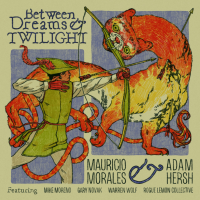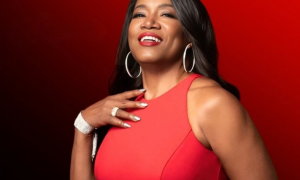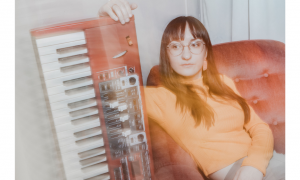Plenty of solid discussion filled the walls of the Kabuki Hotel on Monday where the eighth SF MusicTech Summit was held. Strong panelists and bright attendees all contributed to meaningful dialogue that left those of us in attendance with lots to think about.
Here were some of the highlights:
Tools
Dean Serletic of Music Mastermind shared that major label artists are looking more towards social media now in order to make up for a loss of marketing budgets, which has now leveled the playing field for smaller artists. But with everyone allowed access to the same tools, one attendee posed the question:
The general consensus was that until an artist can afford to pay the people whose core competency it is to market music, they must do what they can on their own and with their team of supporters.
However, Michael Fiebach of Fame House added in a responsorial Tweet that good artists (and thus those with a large enough fan base) have to pay for the premium tools, managers, and marketers to set themselves apart from the noise.
Chris LaRosa of YouTube also stressed the importance of a professional website. He goes on to mention that when a potential fan comes to your site, they're going to make a decision whether or not they like you in no more than 15 seconds.
New Tech Development -
Dave Allen, a digital strategist and the former bassist of English post-punk band Gang of 4, suggests that today's music tech developers aren't asking the right questions:
Jason Feinberg of Concord Music agrees, “We want to figure out new ways to do new things, not new ways to do old things."
Artist Revenue Streams -
It was said during the discussion that 3 million songs are tagged globally on Shazam everyday and 8-9% of those result in transactions on iTunes.
Rob McDaniels of INgroove added that unclaimed royalties from SoundExchange are the biggest surprising source of revenue for artists.
Bryan Callhoun of SoundExchange agreed with him. With $40 million of unclaimed royalties on SoundExchange, Callhoun bluntly stated, “If you don't register with us, we can't pay you."
Dina LaPolt of LaPolt Law, P.C. feels that we need to overhaul our antiquated copyright act and that music is now more of a service now and no longer merely a product.
Music Recommendation Services
David Hyman, CEO of MOG, pointed out that average users consume music online 19/30 days each month with an average of 42 listener hours per user. He also goes on to mention that people prefer man-to-machine over man-to-man relations when it comes to music discovery.
Live Music Marketing
Julia Hartz of Eventbrite mentions that their service provides promoters and the artist access to all their data from ticket sales that allows them to better strategize their tours.
Ian Hogarth of Songkick points out that phone and text continue to dominate concert sharing among friends.
Evan Lowenstein of StageIT emphasizes the importance of creating a memorable live experience by saying, “People cannot pirate an experience, or intimacy."
Music in the Cloud
Music attorney Larry Kenswil explained that cloud revenue is a fixed pie. Artists get a percentage of it and they can't change their size of the pie anymore.
In a response to an audience question about the demand for higher quality audio files hindering the demand for cloud music services, Kensil suggested:
Jon Irwin of Rhapsody feels that music in the cloud acts as an onramp for new music discovery. There's value in having music in the cloud. However, he feels that $10/month is too much for consumers and that it needs to be closer to $5/month.
Here were some of the highlights:
Tools
Dean Serletic of Music Mastermind shared that major label artists are looking more towards social media now in order to make up for a loss of marketing budgets, which has now leveled the playing field for smaller artists. But with everyone allowed access to the same tools, one attendee posed the question:
“If all an artist is good at is writing outstanding music and having killer performances, are they screwed?"
The general consensus was that until an artist can afford to pay the people whose core competency it is to market music, they must do what they can on their own and with their team of supporters.
However, Michael Fiebach of Fame House added in a responsorial Tweet that good artists (and thus those with a large enough fan base) have to pay for the premium tools, managers, and marketers to set themselves apart from the noise.
Chris LaRosa of YouTube also stressed the importance of a professional website. He goes on to mention that when a potential fan comes to your site, they're going to make a decision whether or not they like you in no more than 15 seconds.
New Tech Development -
Dave Allen, a digital strategist and the former bassist of English post-punk band Gang of 4, suggests that today's music tech developers aren't asking the right questions:
“If you're going to deliver a music app, you've got to ask, 'What problem does it solve?' We aren't doing enough of this. Everyone seems to just want to sell their product."
Jason Feinberg of Concord Music agrees, “We want to figure out new ways to do new things, not new ways to do old things."
Artist Revenue Streams -
It was said during the discussion that 3 million songs are tagged globally on Shazam everyday and 8-9% of those result in transactions on iTunes.
Rob McDaniels of INgroove added that unclaimed royalties from SoundExchange are the biggest surprising source of revenue for artists.
Bryan Callhoun of SoundExchange agreed with him. With $40 million of unclaimed royalties on SoundExchange, Callhoun bluntly stated, “If you don't register with us, we can't pay you."
Dina LaPolt of LaPolt Law, P.C. feels that we need to overhaul our antiquated copyright act and that music is now more of a service now and no longer merely a product.
Music Recommendation Services
David Hyman, CEO of MOG, pointed out that average users consume music online 19/30 days each month with an average of 42 listener hours per user. He also goes on to mention that people prefer man-to-machine over man-to-man relations when it comes to music discovery.
Live Music Marketing
Julia Hartz of Eventbrite mentions that their service provides promoters and the artist access to all their data from ticket sales that allows them to better strategize their tours.
Ian Hogarth of Songkick points out that phone and text continue to dominate concert sharing among friends.
Evan Lowenstein of StageIT emphasizes the importance of creating a memorable live experience by saying, “People cannot pirate an experience, or intimacy."
Music in the Cloud
Music attorney Larry Kenswil explained that cloud revenue is a fixed pie. Artists get a percentage of it and they can't change their size of the pie anymore.
In a response to an audience question about the demand for higher quality audio files hindering the demand for cloud music services, Kensil suggested:
“If you look back to the history of music, higher quality sound has NOT been a consumer demand—it's been convenience (LP, Cassette, CD, MP3)."
Jon Irwin of Rhapsody feels that music in the cloud acts as an onramp for new music discovery. There's value in having music in the cloud. However, he feels that $10/month is too much for consumers and that it needs to be closer to $5/month.

























